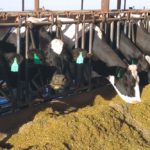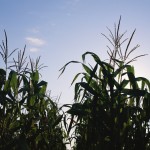
Tag Archives Agricultural economics
Editorial: More of the same?

Once again, big crops cost extra for the U.S. taxpayer
Longtime observers of the farm economy say it’s cheaper to control production than to offset low prices

Families are the core of corporate farming
Corporate farming is an alarming term to some, but the truth is almost all ‘corporate’ farms are still family-owned

Editorial: Time to change

Manitoba agriculture economists earn national award
Paper examining impact of supply management on consumer welfare in poorer households was controversial but widely read

Feds seek ideas for Growing Forward 3
A new website from the federal Agriculture Department gives growers a chance to have their say on farm programs
KAP head says crop insurance changes unnecessary
Dan Mazier is skeptical about suggestions recently made by former MASC chair Frieda Krpan

Editorial: Stuck in time
Land use policies challenge new farmers

Canadian wheat growers hit by subsidy effects
Advanced developing nations subsidize wheat growers, hurting farmers from exporting nations




